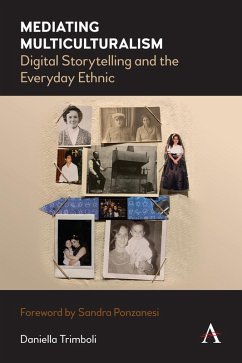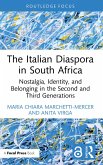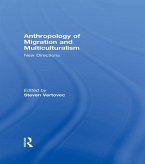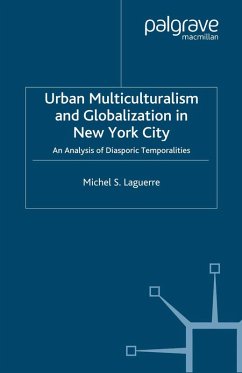Multiculturalism has been a topic of scholarly exploration for almost fifty years. Most recently, these explorations have sought to respond to growing public sentiment that the multicultural ideal, borne out of Western liberalism, has failed. Indeed, 'multiculturalism is dead' has been a popular catch cry in Anglo- and Western-European countries for the past decade. Significantly, the continued discussion about the success or otherwise of multiculturalism registers the topic as alive as ever (albeit in a mode of crisis) and one that shows no signs of disappearing.
There are currently two main scholarly approaches to the so-called crisis of multiculturalism. The first approach retains the importance of multiculturalism by inflating and promoting its positive attributes. The second approach problematizes multiculturalism by retexturing its meaning and attempting to reconnect its political/theoretical domain with its ordinary manifestations. In some instances, the second approach renounces the concept of multiculturalism altogether, positioning it as a past phenomenon. Both approaches frequently mirror broader trends in cultural studies and artistic domains by turning to 'the everyday', using on-the-ground experiences as a tool to redefine the meaning of multiculturalism. But what work is done in the name of the everyday? Is 'the everyday' really a sanctioned, authentic space where cultural difference exists beyond the State? These are questions that neither approach takes seriously nor appropriately addresses.
This modern book addresses this oversight by taking the everyday of everyday multiculturalism to task and doing so via the increasingly popular and everyday medium: digital storytelling. The 'digital' is an important node of analysis, not only because it has so far been overlooked in studies of everyday multiculturalism, but because its immateriality often affords it a distance from critical analyses pertaining to material effects. This book forefronts the materiality of digital storytelling by closely considering how the genre enables racialization to manifest at the level of the body. How does the genre compel the creators of digital stories to embody and/or reject racialized structures associated with concepts of multiculturalism? What do these stories tell us about the way multiculturalism is mediated and, importantly, how it might be re-mediated?
As we enter an era of unprecedented global mobility, discussions pertaining to cultural difference and the systems used to negotiate it become more frequent and more complex. This book makes a timely intervention into these discussions to both consolidate and reimagine the rocky terrain of multiculturalism, providing a valuable resource for scholars in cultural studies, media and internet studies, and ethnic and race studies. Additionally, the book provides a foundation for rethinking digital narrative production pertaining to cultural difference, giving it a practical purpose for educators and digital practitioners alike.
There are currently two main scholarly approaches to the so-called crisis of multiculturalism. The first approach retains the importance of multiculturalism by inflating and promoting its positive attributes. The second approach problematizes multiculturalism by retexturing its meaning and attempting to reconnect its political/theoretical domain with its ordinary manifestations. In some instances, the second approach renounces the concept of multiculturalism altogether, positioning it as a past phenomenon. Both approaches frequently mirror broader trends in cultural studies and artistic domains by turning to 'the everyday', using on-the-ground experiences as a tool to redefine the meaning of multiculturalism. But what work is done in the name of the everyday? Is 'the everyday' really a sanctioned, authentic space where cultural difference exists beyond the State? These are questions that neither approach takes seriously nor appropriately addresses.
This modern book addresses this oversight by taking the everyday of everyday multiculturalism to task and doing so via the increasingly popular and everyday medium: digital storytelling. The 'digital' is an important node of analysis, not only because it has so far been overlooked in studies of everyday multiculturalism, but because its immateriality often affords it a distance from critical analyses pertaining to material effects. This book forefronts the materiality of digital storytelling by closely considering how the genre enables racialization to manifest at the level of the body. How does the genre compel the creators of digital stories to embody and/or reject racialized structures associated with concepts of multiculturalism? What do these stories tell us about the way multiculturalism is mediated and, importantly, how it might be re-mediated?
As we enter an era of unprecedented global mobility, discussions pertaining to cultural difference and the systems used to negotiate it become more frequent and more complex. This book makes a timely intervention into these discussions to both consolidate and reimagine the rocky terrain of multiculturalism, providing a valuable resource for scholars in cultural studies, media and internet studies, and ethnic and race studies. Additionally, the book provides a foundation for rethinking digital narrative production pertaining to cultural difference, giving it a practical purpose for educators and digital practitioners alike.
Dieser Download kann aus rechtlichen Gründen nur mit Rechnungsadresse in A, D ausgeliefert werden.









